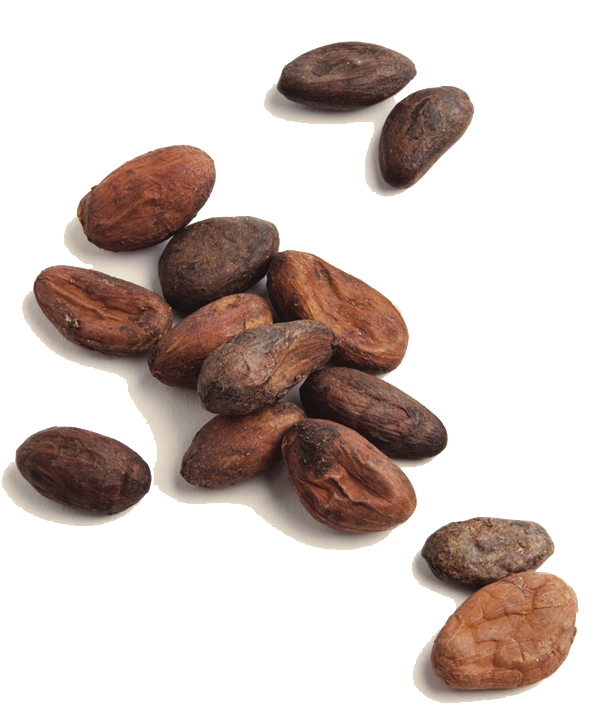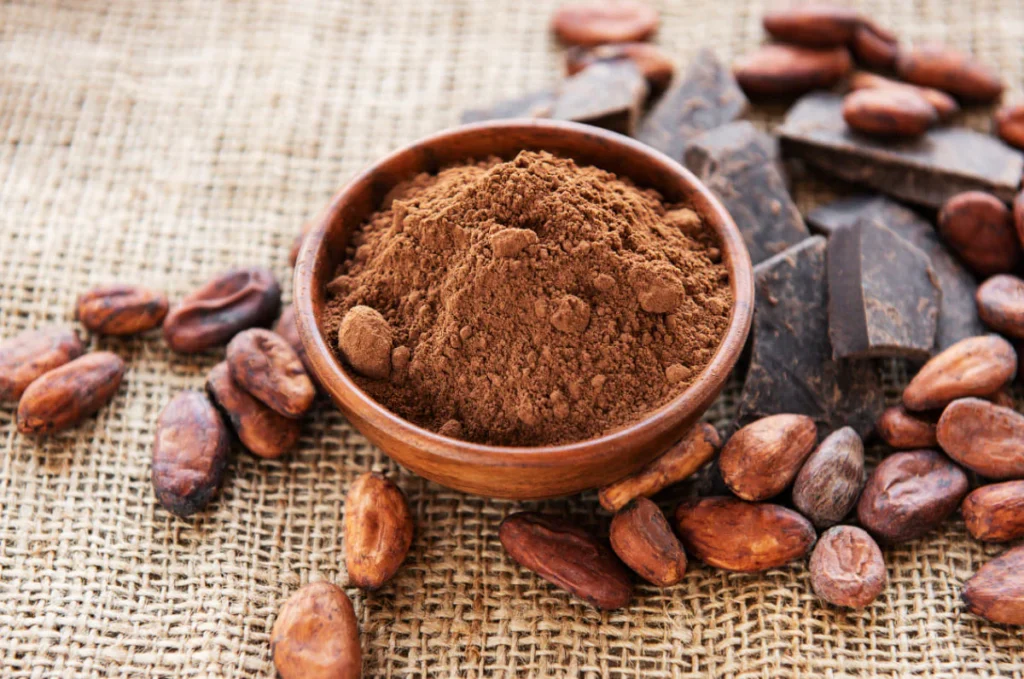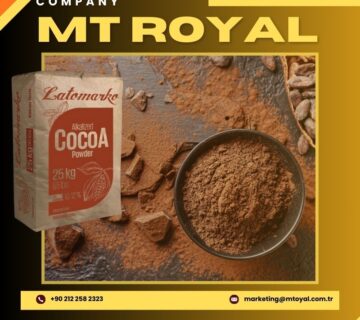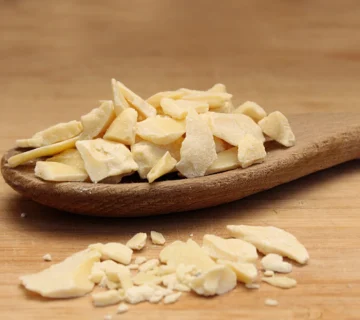In Egypt’s growing food manufacturing industry—spanning chocolate production, bakery applications, confectionery, and dairy flavoring—natural cocoa powder plays a vital technical and sensory role. Far beyond being a flavor enhancer, cocoa powder defines texture, mouthfeel, and product quality across multiple categories. For manufacturers, the choice of supplier is not just a matter of pricing—it’s a long-term operational decision that influences efficiency, consistency, and profitability.
As demand for natural ingredients continues to rise across the MENA region, Egypt stands out as a key hub for cocoa-based manufacturing and processing. The market requires dependable, high-quality natural cocoa powder suppliers capable of meeting the precise needs of industrial-scale production. This is where MT Royal has become a trusted sourcing partner, providing a curated portfolio of global cocoa powder brands—including premium European options like Latamarko, known for their precision and stable performance under demanding production conditions.
Understanding Natural Cocoa Powder: Definition, Composition, and Technical Role
Natural cocoa powder is derived from roasted cocoa beans that are pressed to remove cocoa butter, leaving behind a dry cake that is finely ground into powder. Unlike alkalized (Dutch-processed) cocoa powder, the natural form is untreated with alkali, which preserves its acidic pH (around 5.2–5.8) and deep, robust flavor.
Key characteristics of natural cocoa powder:
- Color: Medium to light brown
- Flavor: Intense, slightly acidic, with complex natural notes
- Fat content: Typically ranges between 10–12%
- Applications: Ideal for cakes, biscuits, cocoa drinks, ice cream, dairy flavorings, and low-pH formulations
In industrial terms, the selection of natural cocoa powder affects:
- Emulsion stability
- Color consistency across batches
- Mixing compatibility in automated systems
- Shelf life and flavor development under heat and storage
For production facilities, the correct cocoa grade can mean the difference between a product that meets consumer expectations—and one that fails sensory testing.
Market Overview: Egypt’s Growing Cocoa Powder Industry
Egypt’s confectionery and bakery sectors are projected to grow at a compound annual growth rate (CAGR) of over 5% between 2024 and 2030. As large and medium-sized manufacturers expand their capacity, demand for imported cocoa ingredients—particularly from European and Southeast Asian sources—has risen sharply.
Key industry trends driving cocoa powder sourcing in Egypt:
- Shift toward clean-label ingredients – Consumers now favor natural over chemically treated products.
- Expansion of export-oriented confectionery – Factories in Alexandria, Cairo, and 10th of Ramadan City increasingly produce for Gulf and North African markets.
- Strategic sourcing diversification – Companies prefer suppliers offering multiple origin options (e.g., African, South American, and European cocoa).
- Cost optimization through bulk contracts – Manufacturers are signing long-term deals to reduce exposure to global cocoa price volatility.
At MT Royal, we’ve supported Egyptian factories by connecting them with reliable natural cocoa powder suppliers offering consistent technical parameters, verified documentation, and flexible bulk delivery options.
Natural Cocoa Powder vs. Alkalized Cocoa Powder: A Technical Comparison
| Feature | Natural Cocoa Powder | Alkalized Cocoa Powder |
|---|---|---|
| pH Level | 5.2–5.8 (acidic) | 6.8–8.1 (neutral/alkaline) |
| Color | Medium brown | Dark brown to black |
| Flavor | Fruity, sharp, natural | Smooth, milder, less acidic |
| Applications | Bakery, dairy, low-pH drinks | Chocolate, coatings, ice cream |
| Processing | Non-treated | Alkalized using potassium carbonate |
The distinction matters for production lines that rely on consistent emulsification or specific sensory profiles. For example, dairy drink manufacturers often choose natural cocoa for its bright flavor and better solubility in low-fat formulations.
What to Look for in a Cocoa Powder Supplier in Egypt
Selecting a natural cocoa powder supplier for industrial production involves more than just checking the price per ton. Factories should evaluate:
1. Product Consistency
Cocoa powder batches should maintain uniform color, fat content, and particle size to ensure reliable machine performance.
2. Certification & Compliance
Industrial buyers should demand ISO, Halal, and HACCP certifications to ensure food safety and export compliance.
3. Bulk Packaging Options
Suppliers should offer 25 kg bags, 1-ton super sacks, or custom bulk packaging compatible with pneumatic or automated feeders.
4. Technical Support
Experienced suppliers provide lab analysis reports, viscosity testing, and application recommendations for recipe development.
5. Origin Transparency
Knowing whether cocoa originates from Ghana, Ivory Coast, Indonesia, or Latin America impacts flavor consistency and sustainability claims.
At MT Royal, we ensure every batch we distribute meets these industrial expectations—balancing cost-efficiency with premium quality. Our experience across multiple production environments has shown that even a 1% deviation in fat content or color can alter product outcomes significantly.
MT Royal: Your Reliable Partner for Natural Cocoa Powder in Egypt
At MT Royal, we supply a full range of cocoa-based ingredients for industrial applications—covering natural cocoa powder, alkalized powder, cocoa liquor, and cocoa butter equivalents. Our partnerships with global producers ensure consistent supply and technical traceability for every shipment.
We’ve worked closely with production facilities across Egypt, supporting factories in sectors like:
- Chocolate and confectionery manufacturing
- Instant beverage production
- Dairy and ice cream formulations
- Bakery and biscuit industries
Our mission is simple: to provide manufacturers with dependable access to high-performance cocoa products—whether for local production or export-oriented operations.
In our experience supplying Egyptian manufacturing facilities, we’ve seen how the right cocoa specification can optimize line performance and reduce waste by up to 12% per batch.
Spotlight on Latamarko: The Premium Benchmark for Natural Cocoa
Spanish engineering has long been respected in the cocoa ingredient industry, and Latamarko stands among the brands that exemplify precision, purity, and processing consistency. Originating from Spain’s rigorous food production standards, Latamarko’s natural cocoa powders are renowned for:
- Uniform particle distribution
- High dispersibility in aqueous solutions
- Stable flavor retention even after high-temperature baking
Factories that produce chocolate fillings, biscuits, or ready-to-drink cocoa beverages have particularly benefited from Latamarko’s natural cocoa—where consistent performance matters as much as cost.
At MT Royal, we’re proud to include Latamarko within our global cocoa portfolio, offering Egyptian manufacturers access to a European-grade ingredient trusted across international brands.
Challenges in Cocoa Powder Procurement: Lessons from the Egyptian Market
Manufacturers in Egypt face several recurring challenges in cocoa powder procurement. Based on years of field experience, we’ve identified the most critical pain points:
- Volatile global prices due to fluctuations in cocoa bean supply from West Africa.
- Shipment delays caused by port congestion or customs clearance issues.
- Quality inconsistency from low-tier suppliers without quality documentation.
- Moisture control problems during local warehousing and transit.
- Lack of technical support when transitioning between different cocoa grades.
By partnering with MT Royal, many factories have been able to streamline their procurement through forward contracts, supplier vetting, and ongoing quality assurance systems.
Practical Tips for Factory Managers: Getting the Best Out of Natural Cocoa Powder
To maximize efficiency and flavor performance in your production line, consider these actionable tips:
1. Match cocoa grade to application
Low-fat natural cocoa suits beverages and low-density batters, while medium-fat types work better in baked or filled products.
2. Control moisture content
Always store cocoa powder below 65% relative humidity to prevent clumping and microbial risks.
3. Use fine filtration systems
Ensure smooth mixing in automated systems by passing cocoa through 80-micron sieves before blending.
4. Recalibrate recipes after supplier changes
Even minor variations in pH or fat content can impact emulsification or color in final products.
5. Work with your supplier’s technical team
Trusted suppliers—like MT Royal—can provide lab data, alternative product suggestions, or application-specific guidance to fine-tune results.
Sustainability and Ethical Sourcing: The Future of Cocoa in Egypt
Global trends in the cocoa industry are shifting toward sustainability and traceability. Large brands now demand assurance that cocoa ingredients come from responsibly sourced farms and non-deforested regions. Egyptian manufacturers that adopt these standards early gain an advantage in export markets—especially in Europe and the Gulf.
Suppliers like Latamarko have already implemented eco-conscious sourcing programs, reducing carbon impact while maintaining technical excellence. At MT Royal, we align with these values by offering traceable supply options for manufacturers committed to ethical sourcing and environmental responsibility.
Frequently Asked Questions (FAQ)
Q1. What is the shelf life of natural cocoa powder for industrial use?
Typically 24 months, when stored in a cool, dry environment away from direct sunlight.
Q2. How does natural cocoa powder affect pH-sensitive formulations?
Its acidity can enhance brightness in dairy or low-pH drinks but may require stabilizers in certain confectionery bases.
Q3. Can natural cocoa powder be blended with alkalized cocoa for color adjustments?
Yes, many manufacturers blend the two to achieve desired shades and balance acidity in recipes.
Q4. What fat content should Egyptian manufacturers target?
Most industrial applications use 10–12% fat cocoa; higher-fat variants can improve creaminess but may affect flowability.
Q5. Does MT Royal provide custom blends or origin options?
Absolutely. We offer custom sourcing and origin-specific blends to meet unique production needs.
Final Thoughts: Building a Reliable Cocoa Supply Chain in Egypt
For Egypt’s dynamic manufacturing landscape, the right natural cocoa powder supplier is more than just a vendor—it’s a strategic ally in maintaining product excellence, cost control, and competitive advantage.
At MT Royal, we combine technical know-how, global sourcing partnerships, and local market expertise to deliver reliable, high-performance cocoa ingredients. Whether you’re developing a new product line or optimizing an existing one, choosing the right supplier ensures your brand’s consistency from batch to batch, and from Egypt to the export markets beyond.
As manufacturing evolves, one truth remains constant: in the world of cocoa, consistency defines quality. And that’s where trusted partners like MT Royal continue to make a difference.
latamarko alkalized cocoa powder lm60
cocoa powder for chocolate production-Best price
Food industry raw materials – list of products
Types of Gelatin from Turkish Manufacturer
Alkalized Cocoa Powder Bulk Supplier







No comment